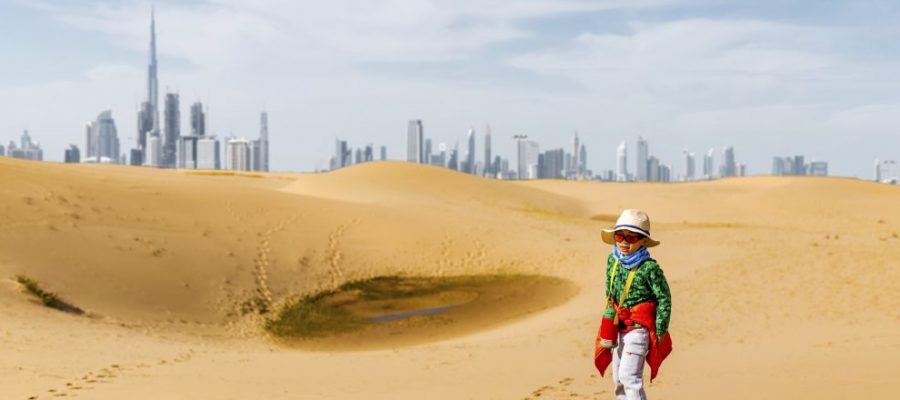We live in a world that has become an increasingly complex web of connections and interdependencies. Our young learners need to get ready to thrive in such a world to do so, tangible skills such as language proficiency are obviously critical to success. But language skills are just part of the whole picture. To be productive global citizens, students need other skills that are less tangible, including greater sensitivity to cultural differences, openness to new and different ideas, and the ability to adapt to change.
What is Global Citizenship?
It is a way of living that recognizes our world is an increasingly complex web of connections and interdependencies. One in which our choices and actions may have repercussions for people and communities locally, nationally or internationally.
A Global Citizen:
- is aware of the wider world and has a sense of their own role as a world citizen
- respects and values diversity
- has an understanding of how the world works
- participates in the community at a range of levels, from the local to the global
- is willing to act to make the world a more equitable and sustainable place
Global Citizenship as a 21st Century Skill
To be effective Global Citizens, young people need to be flexible, creative and proactive. They need to be able to solve problems, make decisions, think critically, communicate ideas effectively and work well within teams and groups.
What does Global Citizenship look like in the Classroom?
Teachers can develop Global Citizenship in their learners by bringing the world to the classroom and engaging learners in:
- Structured discussion and debate
- Role-Play
- Ranking exercises
- Expressing own values and opinions
- Exploring the diversity of identities and cultures
GLOCAL Topics
It is important that teachers bring topics to the classroom which are GLOCAL. GLOCAL means global and local and makes reference to topics which students can relate to from their LOCAL reality and which will also give them the opportunity to explore GLOBALLY.
Many of the challenges facing us – geopolitical tensions, climate change, and disease pandemics-are global in nature and scale, and thus demand cross-border perspectives and solutions. Therefore, students engaged in exploring GLOCAL issues, will be given the opportunity to think about how they can make contributions to solving these issues LOCALLY.
Rethinking the type of materials to use with students
The resources to be used by a teacher who wants to develop Global Citizenship in his/her learners need to:
- Contain global cultural content
- Have an international feel
- Address real-world issues
- Avoid stereotypes
Activities to try!
Global citizenship is about empowering learners to become active promoters of peace, tolerance, inclusiveness and sustainability.
Here are a few activities you can try in your classroom:
- Working with photographs that bring the world to the classroom: enhances visual literacy, slow looking, reflection, connection, and critical thinking.
- Using Essential Questions: divergent questions that activate students´prior knowledge, beliefs, experiences, values and allows for multiple answers
- Using Visible Thinking routines: K-W-L charts make students aware of their already existing schemata regarding issues and also challenge them to wonder and pose questions.

Source: www.ninjaplans.com
- Read about what others are doing: Role models
- People from different disciplines and fields, with different roles, who are doing amazing things for the planet, its people, its animals, plants, oceans and more can inspire the young ones.
- Projects: engaging the young ones in thinking and designing possible solutions to glocal issues is a fantastic opportunity for them to think critically, communicate with others, work collaboratively and creatively towards a common goal.

In Nelson Mandela´s words, “education is the most powerful weapon which you can use to change the world.” Global Citizenship is about empowering young learners to do exactly that, understand the world and do something to try to change it for good. And educators, have a vital role in leading from behind.
Make sure to check out the recording of Luciana’s recent NGL webinar, here!
Author: Luciana Fernández
Luciana Fernández is a graduate teacher of English who has been teaching English for the past twenty-three years. She specializes in methodology and teaching practice. She holds a diploma in Educational Research from the University of Cambridge. She is a reading and literacy expert and has been training teachers for the past ten years. She has designed several presentations and courses for professional development both in Argentina and abroad. Her presentation at ARTESOL 2015 was selected to be presented at TESOL International as a Best Affiliate Session. She is one of the 50 scholarship winners who attended and presented at IATEFL, held in Birmingham in April 2016.
Currently, she is a Learning Consultant and reader for National Geographic Learning. She is also a facilitator at ESSARP (English Speaking Scholastic Association of the River Plate), where she trains administrators and teachers from bilingual institutions in Argentina.




So clever and smart writer.
A very well-organized and well-coherent composition. I loved the was she articulated the words.
Please provide me with her book if she has.
where we can find the video?
Hi Marcela, you can watch the webinar recording here: https://eltngl.com/assets/html/conferences/webinars/videos/younglearners/practical_classroom_developing_young_global_citizens.html